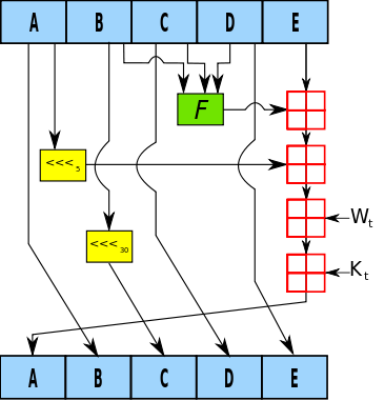Digital Business is Based on Hashing
Hash functions such as SHA-1 are crucial in digital business (f.e. fintech) to produce a small piece of text (the digest) from a larger document. This digest is then a unique representation of the document. No two different documents should have the same digest. Last week Google announced that they can change a PDF in such a way that two different PDFs have the same SHA-1 hash value. Thus, the digest is no longer unique.

CC BY-SA 2.5, https://commons.wikimedia.org/w/index.php?curid=1446602
SHA-1 Broken!
"SHA-1 has been broken." This is a message we hear since 2004. The inventor of SHA (NIST - National Institute of Standards and Technology) urges everybody to move to newer hash function since then.
The Problem
Why is this a problem? HTTPS and SSL/TLS (secure web communication) rely on a certificate infrastructure, it guarantees, for instance, that https://ubs.com is really UBS and not some web server set up by your friendly hacker next door. For this you send some small documents (SSL certificates) to parties (certificate authorities) which sign your certificates and check that ubs.com is really UBS. For this hash functions like MD5 and SHA-1 were used in the past. Being no longer deemed secure enough (MD5 is completely broken and SHA-1 is now for sure on its way out), those certificates can be faked.
Consequences
What does this mean for system administrators? Make sure you change your SSL certificates every 2-3 years.
Check if your website is currently still using a SHA-1 certificate, if yes, replace it. You can use the following website to check this: https://shaaaaaaaaaaaaa.com/ (13 “a”).
If you get a certificate from a certificate authority, make sure, it's using SHA-256. Make sure you use recent enough browsers which a) support SHA-256 and b) present a big fat red warning, if a site is still using SHA-1 (or even MD5). Most current browsers do this.




